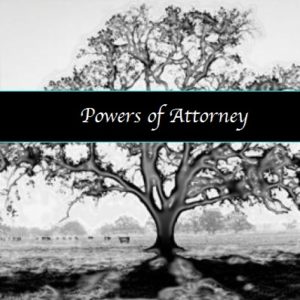Power of Attorney
Home » Power of Attorney
 Incapacity planning is a broad area of law that covers how you are cared for if you become physically or mentally unable to care for yourself. The type of care could range from simple tasks like buying groceries, paying bills, and handling financial matters to more important decisions such as selling real estate or gifting assets to your children.
Incapacity planning is a broad area of law that covers how you are cared for if you become physically or mentally unable to care for yourself. The type of care could range from simple tasks like buying groceries, paying bills, and handling financial matters to more important decisions such as selling real estate or gifting assets to your children.
Incapacity Planning: Do I need a Power of Attorney?
Our Estate planning lawyers understand the necessity of planning for your Incapacity as well as your Estate, which is why we typically include a Durable Power of Attorney, Healthcare Power of Attorney, and Living Will with all comprehensive Estate plans.
Depending on your specific needs, we counsel clients and prepare a variety of planning techniques such as:
- Durable Power of Attorney
- General Power of Attorney
- Specific Power of Attorney
- Healthcare Power of Attorney
- Guardianship
- Living Wills
What is a Power of Attorney?
A power of attorney is a document that allows you to appoint a person or organization to handle your affairs while you’re unavailable or unable to do so. The person you appoint is referred to as your “Attorney-in-Fact” or “Agent.”
Common Power of Attorney Definitions
General Power of Attorney: A general Power of Attorney authorizes your Agent to act on your behalf in a broad variety of different situations that are established by you.
Healthcare Power of Attorney: A Healthcare Power of Attorney allows you to appoint a Health care agent for you become incapacitated.
Special Power of Attorney: authorizes your Agent to act on your behalf in specific situations only. A common example of a when a special power of attorney would be used would be purchasing or selling real estate.
Durable Power of Attorney: The general, special, and health care powers of attorney can all be made “durable” by adding certain text to the document. This means that the document will remain in effect or take effect if you become mentally incompetent, at which time the document will need to be recorded with the Register of Deeds in your county of residence.
Living Will: A Living Will often referred to as an “Advance Directive” is a legal document typically involving your last dying illness, where you can make your wishes known regarding life-prolonging medical treatments. North Carolina and South Carolina both have specific forms that are required to be used for preparing Living Wills, so it is important to seek advice from an Estate planning attorney.
Lawyer for Power of Attorney
To learn more about estate planning with powers of attorney, contact the skilled North Carolina and South Carolina Estate Planning Lawyers at Nosal & Jeter, LLP at (704) 608-3429 or by E-mailing info@nosaljeterlaw.com.
Office hours: 9:00 am to 5:00 pm Monday – Friday.
- Fax: (803) 403-9515
Fort Mill Office
*Our Fort Mill SC office is our law firm’s mailing address for all written correspondence.
Lake Norman Office
Copyright © 2024 Nosal & Jeter, LLP All Rights Reserved. Disclaimer: This is general information provided by Nosal & Jeter, LLP and is not legal advice.

